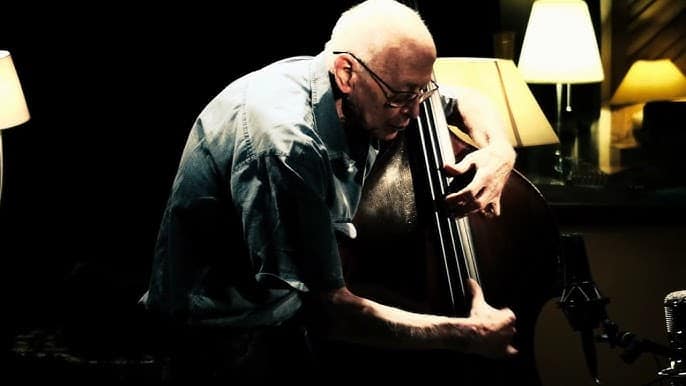Too late to turn back: my opera is in general rehearsal
mainComposer Iain Bell is back in the laundry for the last time, before his big night in Vienna.
Again I write this blog in my regular haunt, the ‘schnell & sauber’ laundrette with forty-two minutes left in the tumble dryer and just a few hours until the General Rehearsal of A Harlot’s Progress. The General Rehearsal is the final fully-staged run-through of the piece in its entirety before the opening, so the last opportunity for any little tweaks to be tweaked vocally, dramatically and orchestrally before we get this show on the road.
Having already basked in the joy of seeing the piece on its feet during last Sunday’s final piano rehearsal, accompanied by the lights, costumes, wigs, sets etc., in their full Technicolor glory, I knew I would be able to entirely turn my focus onto the orchestra in the coming week.
I chose not to attend the first few orchestral rehearsals for two reasons. Firstly, I wanted the conductor, Mikko Franck to be able to stamp his own authority on the work. In past early-stage orchestral rehearsals I have had the experience where players crane over the shoulder of the conductor, bypassing him completely to ask me a question about interpretation. This is very awkward for me and undermining for the Maestro who is charged with interpreting the piece. I wanted to avoid that entirely. Secondly, I wasn’t too keen on hearing the orchestra ‘search’ for the piece and preferred to hear it for the first time when they were a little more familiar with it.

So the sitzprobe on Monday would be our first meeting and I was rather delighted that he venue of said first-date would be the Golden Hall of Vienna’s Musikverein; a wonderfully ornate concert house in the centre of the city. A sitzprobe is the rehearsal where the singers and orchestra first meet one another and in this case the singers were as eager as me to hear the piece, at least I had an idea how it should go; they were chomping at the bit. Not only did they want to hear the sound world I had created to tell Hogarth’s/Ackroyd’s story but they also wanted to assure themselves of such ‘singerly’ yet very valid concerns as whether the orchestration may be too dense for them, whether they could still find their pitches amid the instrumental textures etc.
It is no secret that this piece deals with some extremely dark issues like rape, madness and prostitution all of which I have tried to convey within the orchestra, which is free to explode further during the interludes I have scored to link the scenes. It was the interlude I had composed to depict Moll’s violent ‘deflowering’ that Maestro Franck chose to kick-off with. I was well aware that the acoustics of the hall would not be representative of those in the opera house, distorting, amplifying and echo-ing the music played, but this was definitely the moment where such a distortion had full impact. The violence of the music bombarded the room like the most aggressive, blood-thirsty film score you could imagine. I LOVED it for the sheer shock value of it!
Within a short while our ears had all adjusted and the rehearsal again became the studious environment necessary to get some work done. I could see the singers were really enjoying the process, physically grooving to the rhythms (an action I can assure will not be replicated on stage). I too was relieved that the music all held together and even with the distortion of the hall sounded better than I could have hoped at that juncture thanks to the great orchestra and firm leadership from the conductor.
It was so moving to hear my London soundscape wake up as it so exceeded my expectations. Upon leaving the theatre, I noticed a crowd of fans speaking to the singers with photos to sign. We have been in a ‘harlot bubble’ for six weeks and it is only now starting to really dawn on me that people ARE actually going to be listening to it very soon.






Looking forward to it – I will be there tonight. Good luck!